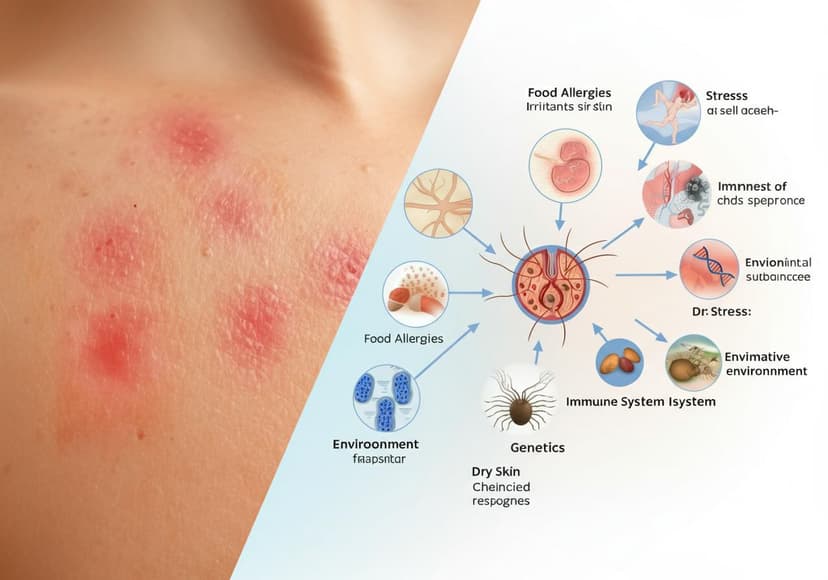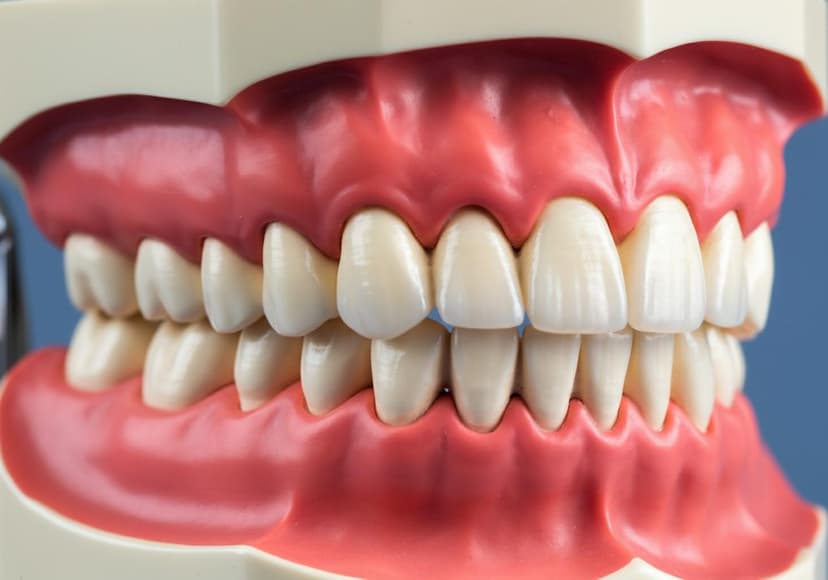Eczema Causes And Symptoms
Causes include genetics, irritants, and allergies. Symptoms involve severe, itchy skin; flare-ups happen unpredictably.
Eczema, often referred to as atopic dermatitis, is a chronic skin condition that can cause an array of uncomfortable symptoms. Many people experience itchy, red patches on their skin, and the condition can lead to significant discomfort in daily life. Understanding the causes and symptoms of eczema is crucial for effective management and treatment.
What is Eczema?
Eczema is a skin disorder that affects people of all ages. It can flare up due to various triggers, and while the exact cause remains somewhat of a mystery, several factors are thought to contribute to this condition. These include an overactive immune system, skin that is unusually dry, and genetic components that increase susceptibility to eczema. Unfortunately, the experience varies from person to person, but learning how to identify your triggers can make a big difference.
Common Symptoms of Eczema
The symptoms of eczema can vary greatly but often include:
- Itching: This is typically the most distressing symptom and can be severe, causing you to scratch your skin and make it worse.
- Red or brownish-gray patches: These patches commonly appear on the hands, feet, ankles, wrists, neck, upper chest, eyelids, and inside the bend of elbows and knees.
- Dry, sensitive skin: People with eczema often have skin that feels dry and tight.
- Thickened, cracked skin: Over time, constant scratching can lead to changes in the skin that cause it to become thick and leathery.
- Small, raised bumps: These can seep fluid when scratched, potentially leading to infections.
For more information on controlling itchy skin, check out this resource.
What Causes Eczema?
Eczema doesn't have one single cause; rather, it's a result of various factors, including:
Family history plays a significant role in eczema. If one or both of your parents have had the condition, you may be more likely to develop it.
Allergies—whether environmental or related to food—can also trigger or worsen eczema symptoms. Common culprits include dairy, soy, eggs, and nuts. Identifying and avoiding these allergens can bring relief.
Some individuals may find that exposure to certain substances leads to an irritant effect. This condition is known as contact dermatitis, and it can exacerbate eczema symptoms.
Everyday irritants such as soaps, detergents, fabrics, and emissions can aggravate sensitive skin. It's best to choose gentle products made for sensitive skin to minimize these reactions.
Dry skin is not just a symptom of eczema but can also be a cause. When your skin lacks moisture, it becomes more susceptible to flare-ups and irritation.
For many, stress and anxiety can trigger or worsen eczema outbreaks. High levels of stress can impact your immune system and lead to inflammation, making it important to manage stress effectively.
The environment also plays a key role in managing eczema. Changes in weather, pollutants, and exposure to infections can trigger symptoms. Keeping your skin protected during harsh weather and maintaining good hygiene can help.
Medications for Eczema
While managing eczema involves a comprehensive approach, including lifestyle changes and avoidance of triggers, sometimes medications are necessary. Corticosteroid creams are commonly prescribed to reduce inflammation and relieve itching. There are also non-steroidal topical medications available for those who have concerns about long-term steroid use.
Oral medications, such as antihistamines, can help control itching and are effective at night. For more severe cases, systemic medications that target the immune system may be recommended. Always consult with your dermatologist to find what fits your unique needs best.
Conclusion
Living with eczema can be challenging, but understanding the causes and symptoms allows you to take active steps toward managing the condition. Don't forget—implementing a skincare routine that nourishes and protects your skin, coupled with medical advice, can help you achieve clearer, healthier skin. If you're seeking ways to understand why your skin feels so itchy, you can check out these insights. For more information on persistent skin issues, consider exploring this resource.

Posts Relacionados

4 On 4 Dental Implant Procedure
Efficiently replaces a full arch of missing teeth with a fixed prosthetic using strategically placed implants.

Bodybuilding Motivation In The Gym
Pushing limits, relentless efforts, and sculpted physiques: witness the unwavering dedication of bodybuilders in the gym.

Cataracts Symptoms And Treatment
Eye clinics offer comprehensive care. Early detection and treatment improve vision and prevent severe eye damage.